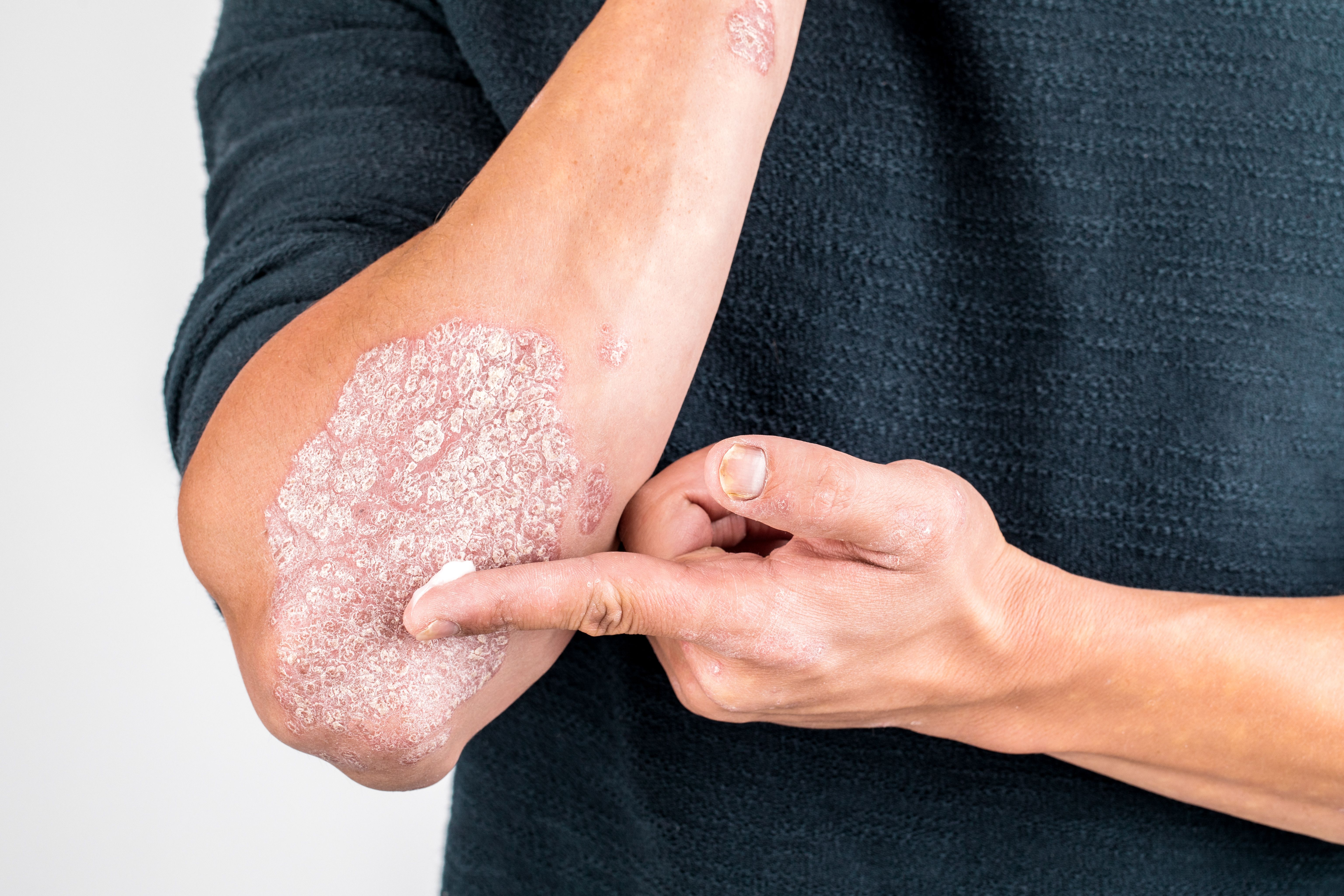- Acne
- Actinic Keratosis
- Aesthetics
- Alopecia
- Atopic Dermatitis
- Buy-and-Bill
- COVID-19
- Case-Based Roundtable
- Chronic Hand Eczema
- Chronic Spontaneous Urticaria
- Drug Watch
- Eczema
- General Dermatology
- Hidradenitis Suppurativa
- Melasma
- NP and PA
- Pediatric Dermatology
- Pigmentary Disorders
- Practice Management
- Precision Medicine and Biologics
- Prurigo Nodularis
- Psoriasis
- Psoriatic Arthritis
- Rare Disease
- Rosacea
- Skin Cancer
- Vitiligo
- Wound Care
Video
Plaque Psoriasis: Biologic Therapy Toxicity Profiles
Author(s):
A panel of experts reflect on the toxicity profiles of biologic agents used to treat patients with plaque psoriasis.
Transcript:
Christopher G. Bunick, MD, PhD: Dr Wu, we just talked about candidiasis. How do the potential adverse effects of these biologics influence your thinking? What adverse events of these biologics are you most concerned about when you’re working with patients?
Jashin Wu, MD: We mentioned a little earlier that the TNF [tumor necrosis factor] inhibitors have a little more baggage. If patients have a history of lymphoma, they can’t get a TNF inhibitor. If they have tuberculosis [TB], a TNF inhibitor probably isn’t preferred, because they could cause reactivation of latent TB. Congestive heart failure, near class III or IV, is also contraindicated for a TNF inhibitor. There are a few more things to be worried with the TNF inhibitor. We’ve also mentioned the interleukin-17 inhibitors. If the patient has inflammatory bowel disease [IBD], these agents could cause an IBD flare. Then there’s the candidiasis, which we already mentioned. That’s not a major concern to me. It’s easy to treat with an oral antifungal, but it’s still something you have to mention to patients.
Christopher G. Bunick, MD, PhD: Dr Torok mentioned brodalumab in her excellent discussion of the biologics. Dr Wu, do you think brodalumab has gotten an unfair label, or do you think this concern over the suicidality is fair?
Jashin Wu, MD: It was very unfortunate. There were 3 completed suicides in the psoriasis trials. One of the things was that in the clinical trials, patients who had a prior history of depression or suicidal ideation weren’t excluded. That’s 1 potential factor why suicides occurred. You’re right: it’s a bit of a hassle and a deterrent for many patients and for physicians to prescribe brodalumab. But a lot of studies seem to indicate that if they were on brodalumab at baseline, some anxiety and depression scores improved once they were on brodalumab for 12 weeks.
Dr Lebwohl and I were coauthors on the 2-year pharmacovigilance report that came out in the last year or so for brodalumab, and there were 0 cases of completed suicides. It seems that there isn’t a real risk of suicide in the brodalumab. Maybe there were just some unfortunate occurrences during the clinical trials. Unfortunately, it affects us having this REMS [Risk Evaluation and Mitigation Strategy] system.
Christopher G. Bunick, MD, PhD: I think all of you are right. Some of the data suggest there’s a degree of safety, but it’s been a very difficult adaptation for dermatologists and patients to jump on board. Do any of you foresee that changing in the future?
Helen Torok, MD: There’s a chance. Don’t you think, Dr Lebwohl and Dr Wu? There’s a chance that that could be changed with more data and more input from the patients who are on it.
Mark G. Lebwohl, MD: I’m not sure if the FDA has ever removed boxed warnings, and that’s the dilemma. I understand why the FDA put that warning on at the time. But now we have data not only from the United States but also outside the United States, where they don’t have a REMS program, and it looks like there haven’t been any suicides in at least 3 years. It might be a good time to reconsider. That extra minute it takes to do the REMS program has blocked our colleagues from prescribing this drug. Of course, they’re worried about it without knowing the full data. At this point, we may be doing harm to patients by removing this as an easy option because it certainly works when other IL-17 blockers don’t.
Christopher G. Bunick, MD, PhD: You’re saying it’s 1 minute. But doesn’t it take way more than 1 minute to fill out the isotretinoin forms for iPLEDGE? Dermatologists spend many minutes filling out the iPLEDGE, so maybe this other form for 1 minute shouldn’t be such a big hassle.
Mark G. Lebwohl, MD: This is much easier than iPLEDGE.
Transcript edited for clarity.
Newsletter
Like what you’re reading? Subscribe to Dermatology Times for weekly updates on therapies, innovations, and real-world practice tips.









